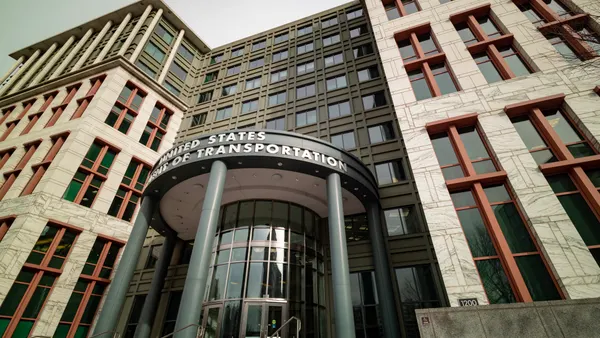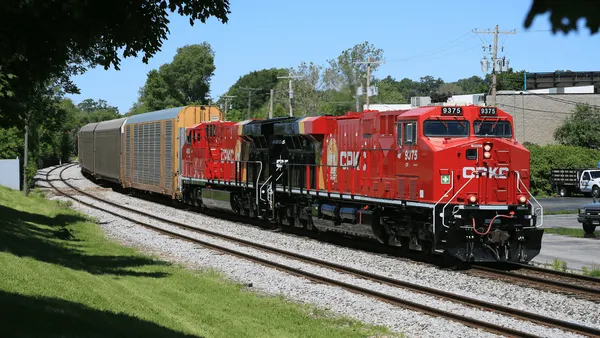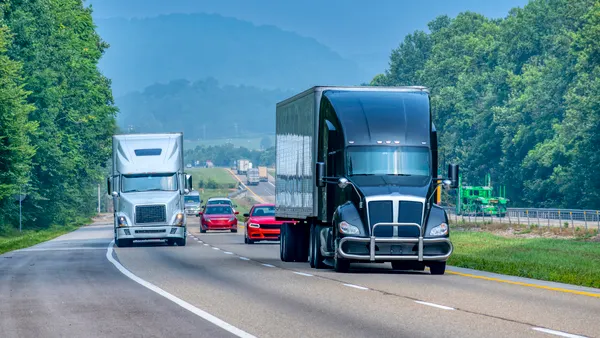Dive Brief:
- The U.S. Department of Labor is proposing a regulation that would revise its interpretation of the Fair Labor Standards Act's classification provision to determine whether a worker is an employee or independent contractor, senior DOL officials said in a press call recently. The public can submit comments on or before Oct. 26.
- The notice of proposed rulemaking describes an "economic reality" test that would examine two "core factors": the nature and degree of a worker's control over the work, and the worker's opportunity for profit or loss based on initiative and investment.
- The rule would also include three other factors that serve as "additional guideposts" in the analysis: the amount of skill required for the work, the degree of permanence of the working relationship between worker and potential employer, and whether the work is part of an "integrated production unit."
Dive Insight:
The announcement is a "jolt of good news" for businesses that use independent contractors, Rich Meneghello, attorney with Fisher Phillips, told Transport Dive sister publication HR Dive via email.
In issuing the notice of proposed rulemaking, DOL is addressing an issue that has received attention in recent years, particularly at the state level in California, the focal point of driver classification.
The California Supreme Court's April 2018 decision in Dynamex Operations West Inc. v. Superior Court of Los Angeles resulted in the "ABC test," a set of three criteria employers must use to determine whether a worker is an independent contractor. That test is now a central aspect of the California Trucking Association's lawsuit to nullify AB5's effect on trucking.
J.B. Hunt, Ryder and Prime settled driver misclassification lawsuits this year in California. J.B. Hunt agreed to pay 312 drivers an average of $20,000, for a total of about $6.5 million. Ryder agreed on a $5 million settlement, which included $3.4 million for class members and a $100,000 claims compensation fund. And Prime agreed to settle two misclassification lawsuits for $28 million.
DOL weighed in on the worker classification issue through a 2019 opinion letter. It said service providers working on an unnamed virtual marketplace company were independent contractors. DOL said in the letter that economic dependence on an employer is "the touchstone of employee versus independent contractor status." The notice of proposed rulemaking "sharpens" the test DOL applied in that opinion letter, senior agency officials said.
"[Gig] economy and other developments are seen as subversive by those who believe that for most workers, being a company's employee — not an independent contractor — is the only proper aspiration," Secretary of Labor Eugene Scalia wrote in an opinion piece for Fox Business. "Unlike AB-5, our rule doesn't propose radical changes in who's classified as an employee or independent contractor. Instead, our rule aims to simplify, clarify and harmonize principles the federal courts have espoused for decades when determining what workers are 'employees' covered by the minimum wage and overtime pay requirements of the FLSA."
The proposed rule "will almost certainly be challenged" by worker advocates and, potentially, state attorneys general, Meneghello said, which could delay its implementation past Election Day. During the press call, senior DOL officials didn't voice concerns about the rule's timeline, only noting that the agency would analyze public comments "very thoroughly."
S.L. Fuller contributed to this report.












